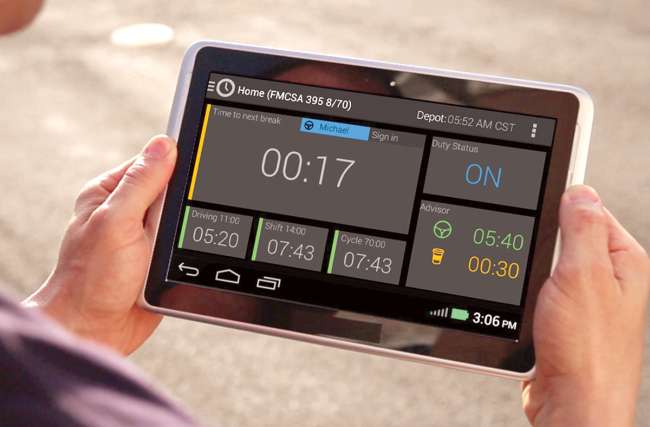ELD Mandate Presents Opportunity to Boost Fuel Efficiency, Technology Vendors Say

Complying with the Federal Motor Carrier Safety Administration’s electronic logging device mandate may create new expenses for new adopters of the technology, but the devices also could generate fuel savings for carriers depending on the type of system they deploy and how they use the data.
The federal ELD mandate, which took effect Dec. 18, requires most interstate drivers to record their hours of service with ELDs rather than paper logbooks.
“It would seem if you’re going the ELD route you might as well buy a more capable telematics system with some of these analytics,” said Mike Roeth, executive director of the North American Council for Freight Efficiency.
FUEL ECONOMY IN FOCUS: Fleets save with telematics data, driver coaching
While some fleets may opt for a basic ELD, others will look for a more sophisticated system that can improve fuel efficiency and safety.
“Fleets that are smart about it are looking at where they can drive further efficiencies,” said Pete Allen, chief client officer for MiX Telematics.
Reza Hemmati, director of product management at trucking technology supplier Spireon, said the ELD mandate is bringing telematics to many fleets that otherwise would not have explored or adopted such technology.
“As a result, fleet managers are for the first time introduced to other benefits of an engine-connected telematics solution such as asset visibility, driver safety and fuel efficiency,” he said.
The need for ELDs will push fleet operators to search for systems that provide economic benefits and not allow the mandate to be a cost to their business, said Christian Allred, manager of global sales for technology supplier Orbcomm.
“Providing feedback to a driver on his performance in a fair and unbiased manner gives him the opportunity to understand the expectations and use the guidance provided to maximize performance,” he said.
Jason Jones, information technology manager at Solar Transport, a bulk carrier based in West Des Moines, Iowa, said telematics systems have resulted in significant fuel savings for the fleet and the data have helped support business decisions.
“It has by far exceeded our expectation with the amount of savings that we receive on a yearly basis from the fuel,” he said. “MPG alone paid for the implementation.”
Eric Witty, vice president of product management for PeopleNet, said fuel savings can create a tangible return on investment on the devices.
“One of the ROI drivers that we have always and will continue to push is fuel economy,” he said. “Once people adopt the technology, there is no doubt fuel economy will be one of the things they want to do with it.”





